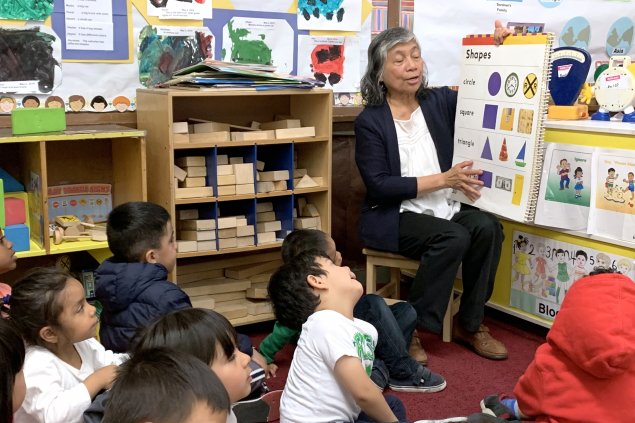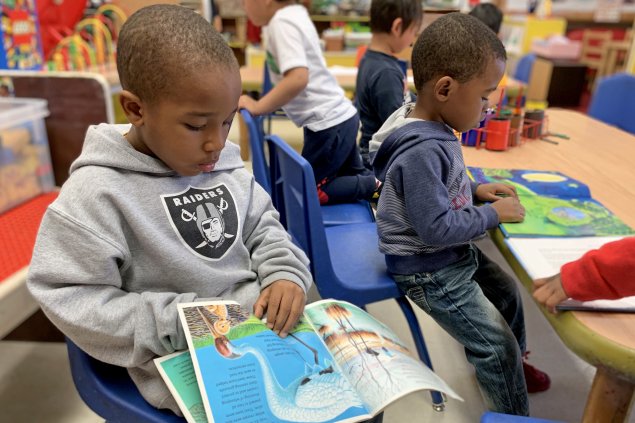Our Philosophies Link to this section
Our schools’ programs, educational approaches, and curricula are designed to maximize the success rate of our students, preparing them for kindergarten and an educational career as aligned with California’s Common Core Standards. To best support a young child’s skills and emergent development, we seek to integrate social-emotional development, physical/motor development, math, science, language and literacy, and visual/performing arts—a constructivist approach to learning that aligns the district’s priorities and goals with the holistic development of the child.
The Early Education Department (EED) uses the California Department of Education’s “Desired Results for Children and Families” framework to support student learning and growth. For more information, please see www.cde.ca.gov. Additionally, classroom assessments are conducted to support teachers in creating rich educational environments and serve as tools to help parents monitor student growth and progress.
Since prioritizing early literacy development at every site, the EED has been particularly successful in designing curricula that support meaningful and age-appropriate reading, writing, listening and oral language development, while fostering classroom environments that inspire creativity and curiosity. In addition, our Dual Language Learning Program offers space for children who are native or non-native speakers of Spanish, Cantonese, or Samoan. This program celebrates their diversity and strengthens their language skills in both the home language as well as English.
The EED embraces the essential principles of early childhood development aligned with the California Preschool Learning Foundations and the “12 Principles of Child Development” of the National Association for the Education of Young Children. We design our school programs using the following district-approved educational approaches as inspiration:
- The Reggio Emilia Inspired Approach: Developed by teacher Loris Malaguzzi in post-WWII Italy, this approach encourages children to learn personal responsibility, respect and resiliency through self-guided curriculum and a strong collaboration between children, parents and teachers.
- The Project Approach: Teaching strategies that encourage students to engage in hands-on learning about real- world topics as a small group or class, while supporting and developing the child’s sense of spontaneity, skill-building capacity, knowledge and feelings through long-term investigations and reporting in a community setting.
- The Creative Curriculum®: Early- childhood teaching strategies that use process-based learning to encourage observation and exploration, organization, communication and the connection of ideas, thoughts and images.
- The Montessori Method: Developed by Maria Montessori over a century ago, this educational approach nurtures a child’s natural sense of discovery and independence by using multi-sensory, hands-on techniques and emphasizing social-emotional skills through meaningful community activities, self- expression and collaborative work.
- The HighScope Curriculum: The HighScope Preschool Curriculum integrates social-emotional learning content with other academic areas and allows children daily opportunities to practice skills such as emotional self-regulation and problem-solving. Children's interests and choices are at the heart of HighScope programs.
This page was last updated on December 1, 2022



